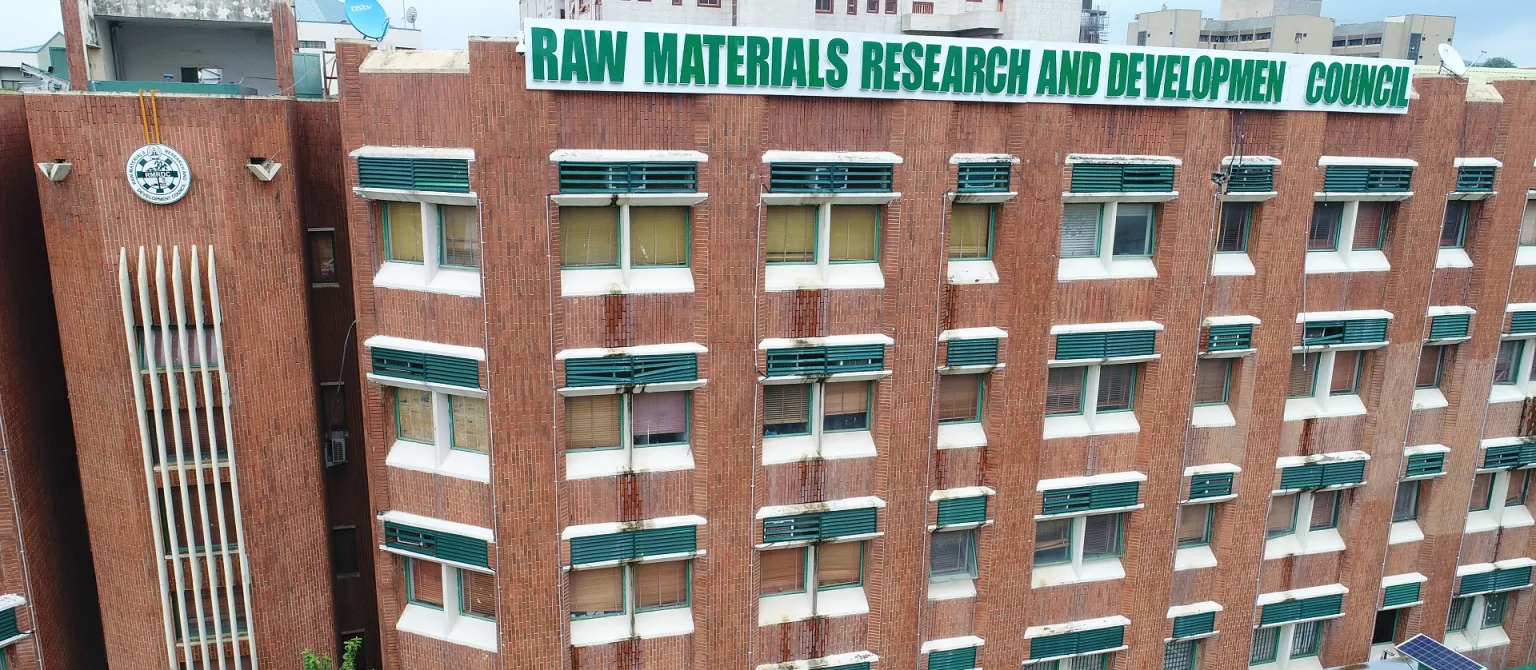The Raw Materials Research and Development Council (RMRDC), has established a Toxicology Information Centre (TIC) in line with the provisions and guidelines of the World Health Organisation (WHO). The centre, which is located within the council’s laboratory at the African University of Science and Technology (AUST) in the Federal Capital Territory, Abuja, is meant to provide toxicology information and continuous systematic collection of data that may assist in addressing expected and unexpected exposures to chemicals and other dangerous activities involved in raw materials production activities.
The Director-General of the Council, Prof. Hussaini Ibrahim, said agricultural production and productivity in the country was practised with widespread use of chemicals, such as inorganic fertilisers, pesticides, herbicides that are associated with serious risks for the environment and dangers to human beings, the flora and fauna of high economic potentials for pesticides are said to be highly toxic and persist in the environment. “It has the ability to be transported along the food chains and to migrate to adjacent environments, such as water bodies, soil and the air, as well as the ability to accumulate in products produced. The constant application of pesticides results in the appearance of resistant forms of harmful organisms. This requires strict regulation of their use in agriculture and constant pollution monitoring of agro ecosystems”, he said.
Ibrahim added that it was important for the Council to ensure adequate monitoring of the effects of these activities on the environment and on the fauna and flora in the country, to provide solutions to their debilitating effects. As a centre of expertise, the TIC would provide critical public health and chemical safety services to manage harmful effects of toxic exposures and poisonings in a cost-effective manner. Its roles, among others, are the identification, collection and dispensing of all information concerning acute exposure to chemicals for the purpose of evaluating the toxic and chemical risk, to monitor, warn and prevent poisoning in order to protect and secure human and environmental health.
“It is also a centralised repository of data about human exposures to chemicals, including information about the agents involved, the situations giving rise to exposure, and the health effects of exposure. These data can be used to assist in the reduction of the incidence of poisoning by identifying emerging toxicological hazards, stimulating preventive measures by raw materials explorers and exploiters, manufacturers and regulators and assessing the effectiveness of such measures”, he said. The Toxicology Information Centre would aid the realisation of a number of the essential capacities needed by Nigeria for the implementation of the International Health Regulations (2005) in particular, the capacities for surveillance, preparedness and response for public health events involving chemical agents in the nation.
In a similar vein and in the bid to promote food production and lessen poverty, the National Agricultural Land Development Authority (NALDA) has opened an empowerment centre for farmers in Borno State, together with 120 housing units. Located in Zawiya village, the complex now has solar-powered boreholes, access roads, a worship centre, and a school for children of farmers. The segmented facility is equipped with fish ponds, poultry houses, goat pens in the production area, raffia, and an empowerment centre that is already completed and would provide training to women and young people. The Executive Secretary of NALDA, Prince Paul Ikonne, while launching the edifice alongside Prof. Babagana Zulum the governor of Borno State, in Maiduguri, explained that the initiative was to make young Nigerians to go into farming.
“Today, we commissioned 120 housing units built for farmers in Borno. The aim is to give farmers a good accommodation. The other centre is the agriculture empowerment centre where youth and women would be trained within three to four months. Thereafter, they will be given startup packs to enable them to do agricultural business on their own. All these are geared towards reducing unemployment and achieving food security. The empowerment centres are new projects of NALDA”, Ikonne said while adding that the centres would have a fishery, poultry, animal husbandry and raffia grass field all aimed at job creation.
“The importance of these agriculture empowerment centres is to create job opportunities and also encourage young Nigerians to go into agriculture. We will be more delighted to have it done with corporate or individuals so that it will be anchored around them and the farm will be managed by them while we empower the youth from the proceeds that come from there”, he stated, adding that the farmers would be recruited in trenches, saying, “We are looking at 250,000 young Nigerians across the country, to empower them in different fields in the first phase. It is going to be a continuous phase”. Speaking after inaugurating NALDA’s rural housing scheme, Zulum commended Ikonne for choosing Borno to execute such projects, noting that it would contribute to the economic development of the state.

